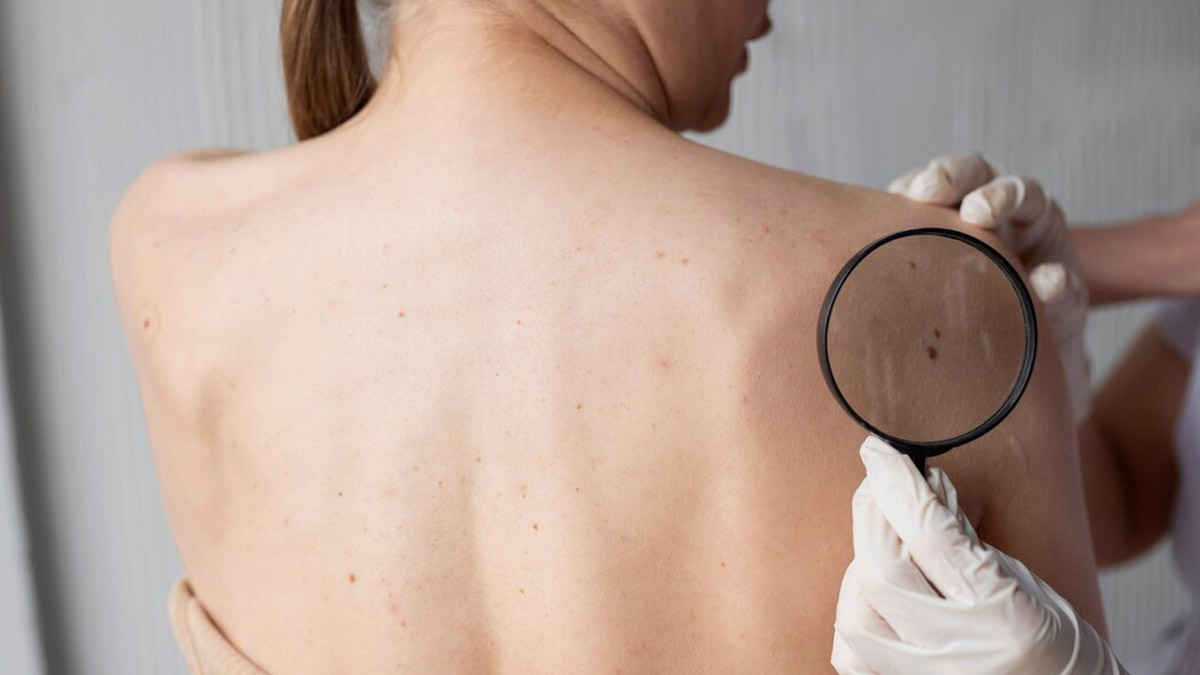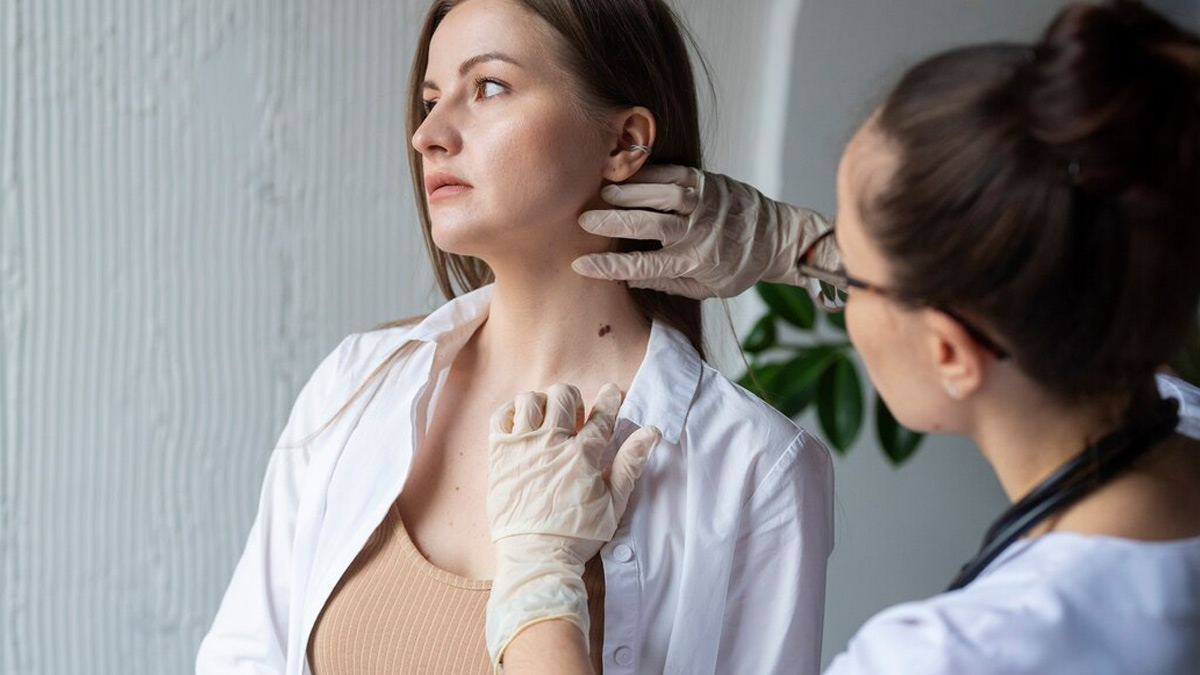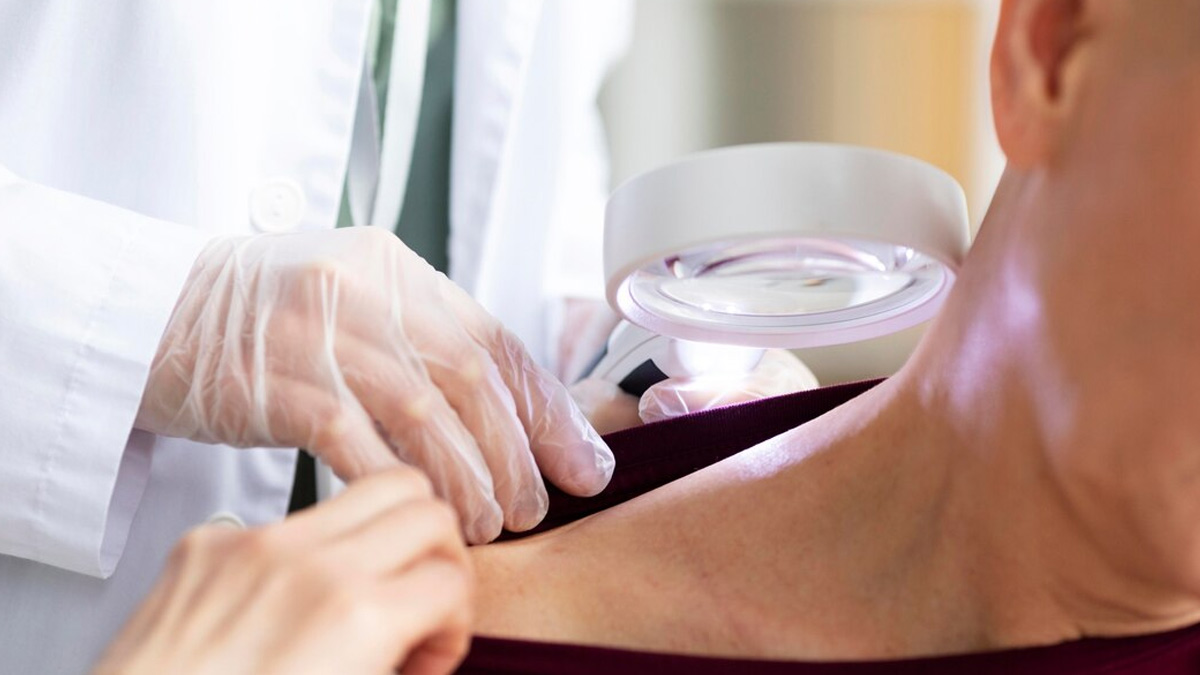
Heman Bekele, a 14-year-old ninth grader, has been named “America’s top young scientist" for developing a cost effective soap, aimed to treat skin cancer.
As of now, between 20-30 lakh non-melanoma skin cancers and 1.32 lakh melanoma skin cancers occur globally each year, according to the World Health Organization (WHO). In the US alone, an estimated 9,500 people are diagnosed with skin cancer every day, says the American Academy of Dermatology (AAD).
Table of Content:-
The middle-school teen from Annandale, Virginia, won the award after competing against and beating nine other finalists in the 2023 3M Young Scientists Challenge, winning the $25,000 grand prize.
In his submission, Bekele said, "Curing cancer, one bar of soap at a time,” adding, "I have always been interested in biology and technology, and this challenge gave me the perfect platform to showcase my ideas."
Also Read: Skin Cancer: Types, Causes & Preventive Measures
How Does The Soap Work?

Bekele's innovation takes its inspiration from his time in Ethiopia, where he had seen people constantly working under the sun, he told the Washington Post.
“I wanted to make my idea something that not only was great in terms of science but also could be accessible to as many people as possible," he said.
“Skin cancer is mostly found in people living in developing countries,” he told Farifax County Public Schools, adding, “But the average price for an operation is $40,000. I was devastated by the idea of people choosing between treatment and putting food on the table for their families. There are so many preventable deaths.”
According to a Daily Mail Report, "Bekele made the cancer-fighting soap by infusing medicinal soap with three ingredients that have been found to reactivate dendritic cells that generate an immune response to combat cancer."
Understanding Skin Cancer And Its Symptoms

Skin cancer is the most common type of cancer, which is further divided into three main types namely basal cell carcinoma, squamous cell carcinoma and melanoma.
Skin cancer usually occurs due to an abnormal growth on skin cells, which is most commonly caused by sun exposure, according to the Mayo Clinic.
Dr Pratik Patil, Consultant Medical Oncologist, Jupiter Hospital, Pune, says, "Skin cancer can present with symptoms such as non-healing sores, red or pink patches, rough or scaly skin, persistent dry skin, cauliflower like or velvet growths, and changes in existing moles, including alterations in size, shape, color, texture, irregular borders, or bleeding."
Often the symptoms of skin cancer are mistaken for benign skin conditions due to several reasons. For instance, skin cancer lesions can resemble conditions, such as warts, cysts, eczema, or benign moles, making visual inspection alone insufficient for accurate diagnosis, according to the doctor.
In addition, people with brown skin may find it challenging to notice skin cancer symptoms early, leading to delayed diagnosis.
Also Read: 6 Expert Tips To Keep In Mind While Buying Sunscreen
Things To Keep In Mind

When it comes to skin cancer, not only is it important to be aware of its symptoms, but it is also crucial to assess your risk. People with a family history of any cancers, those who have a heavy exposure to direct sun, individuals working in the fields, and people who have repeated trauma to skin like carpenters, painters, wood workers, and electricians should be more careful and vigilant.
If you suspect skin cancer or have concerning symptoms, you can get certain tests to confirm your diagnosis. These include:
- A biopsy, which involves the removal of a small sample of suspicious tissue
- Dermatoscopy, which allows for a closer examination of moles and skin lesions to identify suspicious features
- Imaging tests, like CT scans, MRI scans, or PET scans to assess the spread of the disease in more advanced stages
According to the US Centers for Disease Control and Prevention (CDC), most skin cancers are caused by too much exposure to ultraviolet (UV) rays, which is why protecting your skin from Sun's rays by putting on sunscreen, staying in shade, wearing clothing that covers your arms and legs, and putting on a hat with a wide brim can help.
Also watch this video
How we keep this article up to date:
We work with experts and keep a close eye on the latest in health and wellness. Whenever there is a new research or helpful information, we update our articles with accurate and useful advice.
Current Version